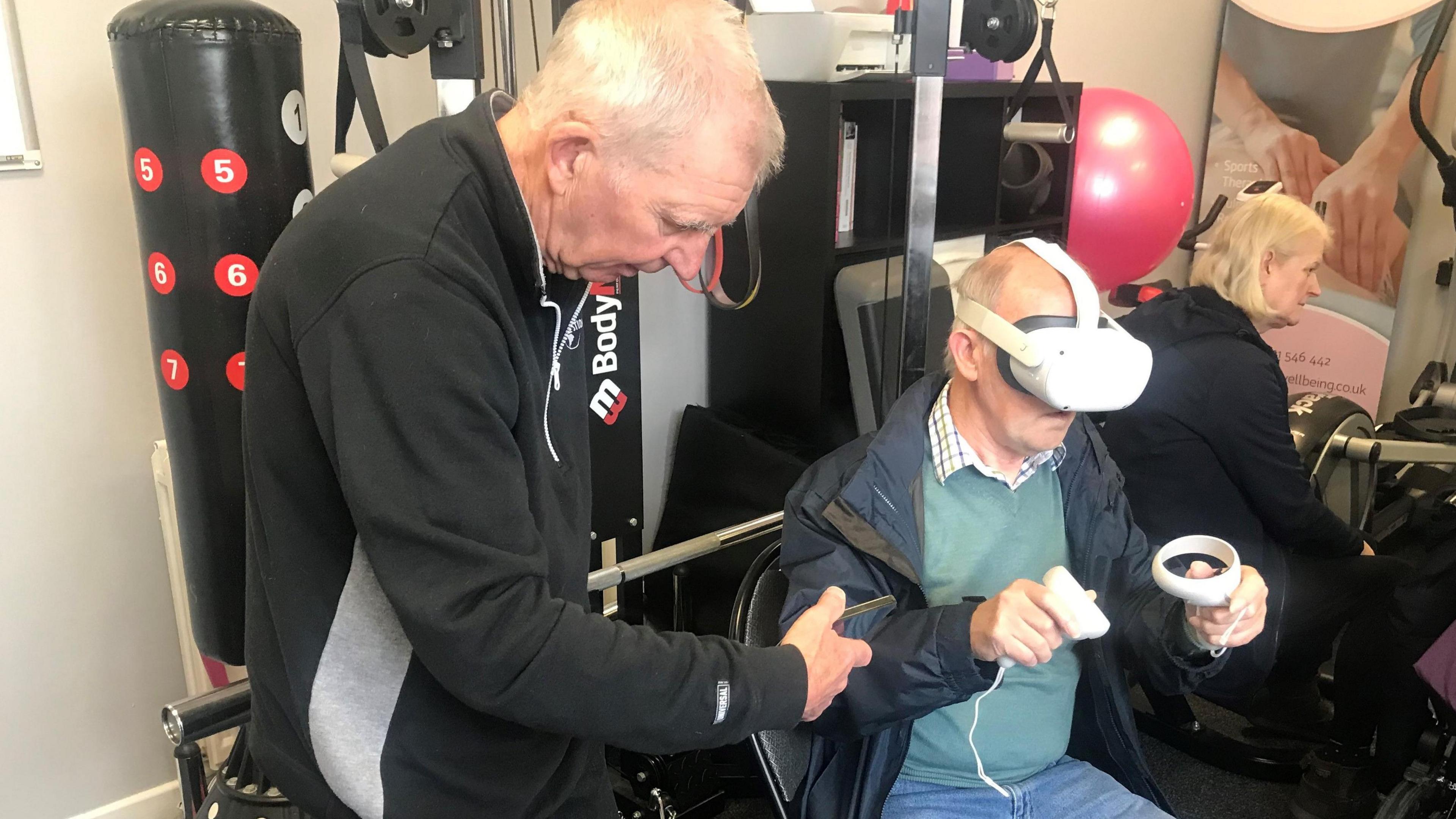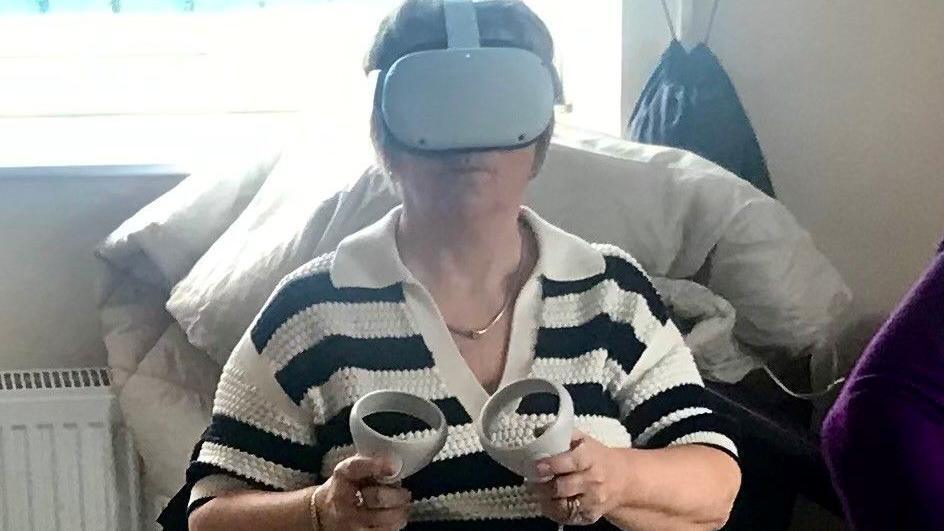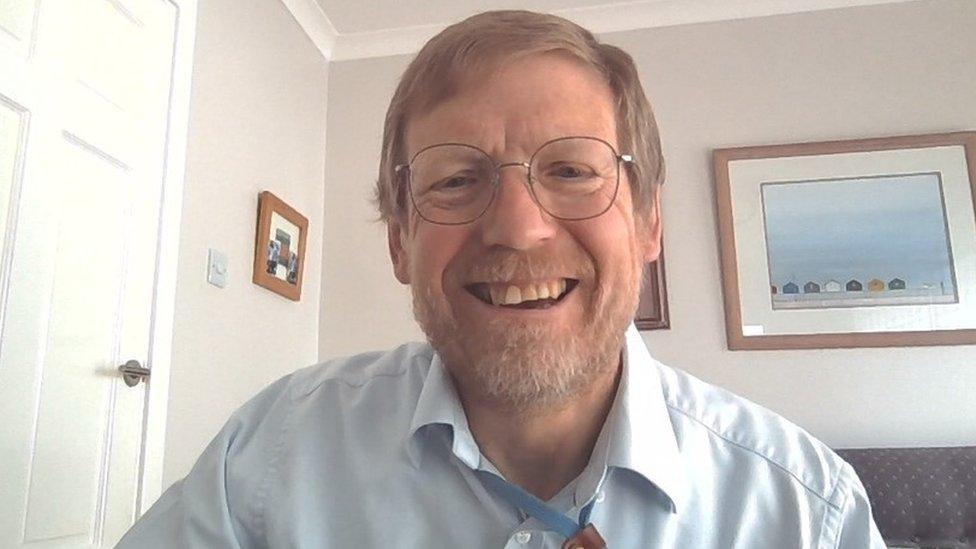Virtual reality helping people with Parkinson's

The technology is being used to help people with Parkinson's produce adrenaline and dopamine, which alleviate the symptoms
- Published
Virtual reality headsets are helping alleviate the symptoms of people with Parkinson's, a charity has said.
Up to 12 people a week have been wearing the headsets in a trial at a fitness and well-being gym based at Teesside Airport, near Darlington.
They take part in virtual activities, such as visiting the Taj Mahal, participating in an exercise class, or climbing the Acropolis.
A spokesperson from charity Parkinson's UK called the trial of virtual reality "really exciting".
The stimulus from the virtual activity produces adrenaline and dopamine in the body, both of which alleviate symptoms.
These can include tremors, balance problems and slow and stiff movements.
'Turning the clock back'
Retired lecturer Keith Wilson, who was diagnosed with Parkinson’s four years ago, came up with the idea after taking numerous rollercoaster rides on a holiday in the United States.
Once back home in County Durham, he found virtual reality headsets could replicate the thrill.
"Certainly for me it’s like turning the clock back on your illness, for a few hours anyway at least," he said.
"It makes everybody feel good, they all end up smiling.”
He raised £4,500 to buy 10 headsets and offer free classes - the only ones of their kind in the UK.
The weekly classes are overseen by Mr Wilson and well-being coach Victoria McFaull.
"Scaling it up is going to be difficult, but I think the potential is massive," Mr Wilson added.

Janet Murphy, who attends the classes, said she hoped more would pop up closer to her Middlesbrough home
Janet Murphy takes part in the classes, but says she would like one closer to her home in Middlesbrough.
She said: "It’s a little bit like going to the gym - you don’t want to go but after you’ve been you feel energised, especially if you keep up with the games that are on the headset and keep getting faster."
'Early potential'
Parkinson’s UK contributed £1,000 to the trial and is monitoring its results, which has had interest from other charities, including Age UK and the Multiple Sclerosis Society.
Tim Morton, physical activity programme lead at Parkinson’s UK, said that being physically active for just two-and-a-half hours a week could make a real difference to those with the condition.
"We are constantly looking for new ways to encourage our community to get active in enjoyable ways and the trial of virtual reality is really exciting," he said.
"It has shown some early potential for people with Parkinson's, in terms of boosting energy levels, mood and motivation.
"With more time and more people trying out the technology, we could uncover many more benefits."
Follow BBC Tees on X (formerly Twitter), external, Facebook, external and Instagram, external. Send your story ideas to northeastandcumbria@bbc.co.uk.
Related topics
- Published16 February 2024

- Published6 November 2023
